Rethinking Stress: Embracing the Right Mindset and Finding Aligned Growth
It was some time ago that I first encountered Kelly McGonigal’s work on stress and the concept of eustress. Kelly, a health psychologist, caught my attention through her thought-provoking ideas about stress, and I was already familiar with her sister Jane’s fascinating work on video games and mental health. These insights, combined with my own experiences, have profoundly reshaped how I think about stress. I’m learning more about stress and the importance of a growth mindset associated with it.
The Common Mindset Around Stress
Stress often gets a bad reputation. It’s a term associated with overwhelm and anxiety, something to be managed or eliminated. As a therapist, many clients come to me seeking ways to reduce stress in their lives. Booking a session to work on stress management can be an excellent first step to understanding and transforming the role stress plays in your life.
This realization hit me recently while I was deep in focus, finishing a chapter of my book. My smartwatch alerted me that my stress level was high, suggesting I stop and breathe. My default response was, “I should calm down.” But then I recalled Kelly McGonigal’s TED Talk, where she shares enlightening research on the critical role mindset plays in determining how stress affects us. It’s vital we have an upgrade in our understanding of stress and the needed growth mindset to be attached to it.
Distress vs. Eustress: The Key Distinction. Expanding our mindset.
It’s essential to differentiate between distress and eustress. Distress, the type of stress that overwhelms and harms us, can take a toll on our mental and physical well-being. Addressing this often requires significant changes in routines or even major life decisions like switching career paths. These are topics I frequently discuss with clients during sessions.
Eustress, on the other hand, is the “good” kind of stress. It challenges us, pushes us towards growth, and can even lead to flow states—a deeply fulfilling mental state of focus and immersion. An excellent post I recently read about stress and eustress delves into how flow states play a pivotal role in mental health. It reminded me of a blog I wrote on flow states and their positive impact, further illustrating the value of eustress when it aligns with our strengths and goals.
The Power of the Stress as Growth Mindset and Viewing Stress Differently
Kelly McGonigal’s TED Talk emphasizes how our mindset about stress shapes its impact on us. When we view stress as harmful, our bodies respond accordingly. However, when we view it as our body’s way of preparing us to meet challenges, stress can become a tool for resilience.
The research McGonigal shares highlights how simply reframing stress from a danger to an ally can change how it affects our health. This shift to a growth mindset around stress, also discussed in the post I read, is a gateway to better resilience and even greater meaning in our lives. It’s not about eliminating stress but about harnessing it in ways that work for us.
Finding Aligned Stress for our Growth
While mindset is crucial, it’s equally important to identify the type of stress we’re engaging with. Misaligned stress—such as working in an unfulfilling job—creates distress and hinders growth. On the other hand, aligned stress, where the challenges we face resonate with our values and goals, can be transformative.
Small adjustments, like carving out a phone-free lunch break in a park, can help reduce unnecessary distress. Sometimes, bigger changes, like reevaluating a job that no longer serves you, may be necessary. This is where working with a professional to identify and address misaligned stress can be incredibly helpful.
Stress as a Neutral Force
Ultimately, stress is neither good nor bad—it’s neutral. Its impact depends on how we perceive it and whether it aligns with our personal goals. This balanced perspective allows us to see stress not as an enemy but as a natural part of life’s challenges and opportunities.
The post I mentioned earlier also discusses how flow states are more easily accessible when we are under the right kind of stress. These states, as I’ve written about in an earlier blog, are deeply rewarding and beneficial to mental health, further underscoring the importance of understanding and embracing eustress.
The Journey of Growth with the right stress
Growth, much like the transformation of a caterpillar into a butterfly, involves struggle. Stress is an inevitable part of this process, but it’s also what makes the journey meaningful. When we align our stress with our deepest values and approach it with the right mindset, it becomes a powerful force for change.
Conclusion: Embracing the Inner and Outer Game
Reframing stress requires balancing the inner game—our mindset—and the outer game—our environment and choices. While a positive mindset can help us navigate challenges, we must also address external factors that cause distress. It’s not about “fixing” ourselves but about creating alignment between our values, goals, and the stresses we take on.
Stress is a vital part of growth. By understanding it, embracing the right mindset, and choosing aligned challenges, we can transform it from a source of anxiety into a tool for transformation and fulfillment.
If stress is an issue for you currently then feel free to reach out.
You can book a session directly here.
Or reach out by email or phone
All the best
Phil
021 058 3234
philip@newbeginningstherapy.co.nz
www.newbeginningstherapy.co.nz

